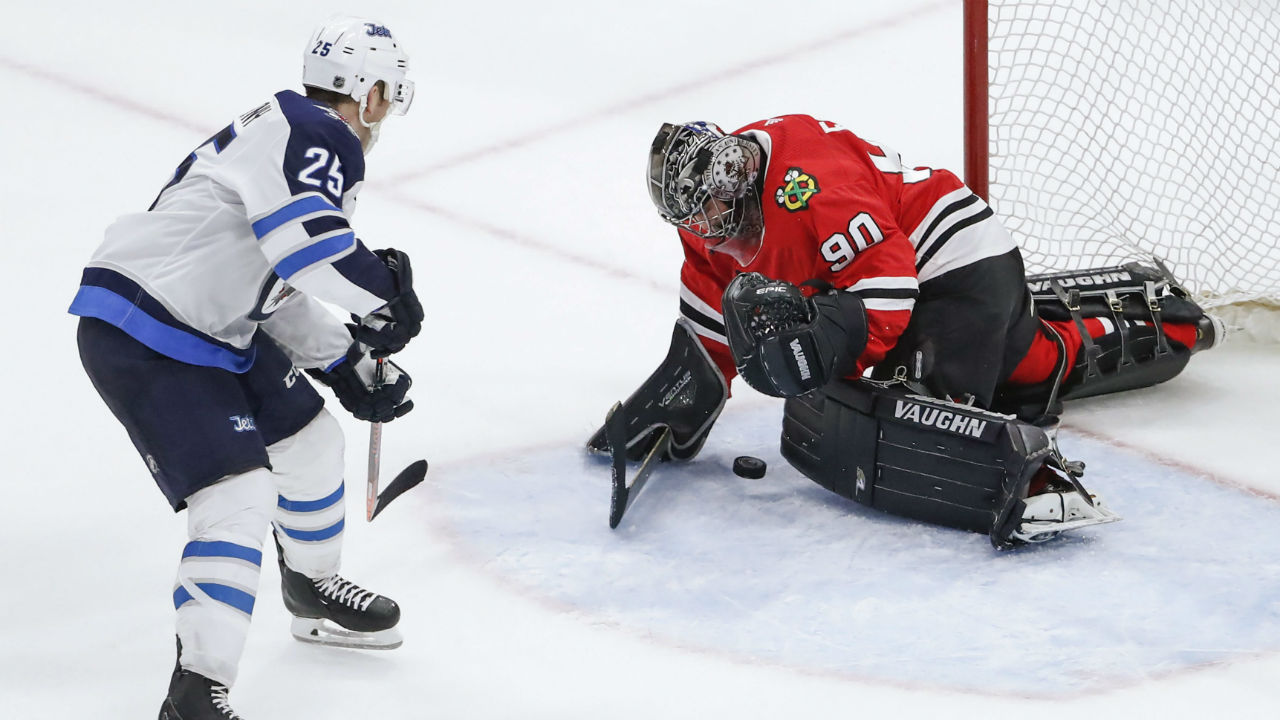The era of non-professional players like accountants stepping into NHL games might be nearing its end.
Emergency Backup Goalies (EBUGs), who gained fame when accountant Scott Foster had to play for the Chicago Blackhawks in 2018, are being transitioned into full-time roles under the new NHL-NHLPA collective bargaining agreement.
The agreement, ratified on Tuesday and effective from the 2026-27 season, was publicly released Friday.
The document details specific criteria for EBUGs, aiming for candidates who are competitive but not elite professional players.
Historically, EBUGs served as a third goaltending option present at games and were often regular individuals called upon only if a team`s first two goalies became unavailable during a single game.
Under the new rules, teams must designate an EBUG 48 hours before the season begins and 24 hours before each game. These players will now travel with a single team for all their games, unlike the previous system where one EBUG might cover games for both competing teams at an arena.
However, strict eligibility requirements apply: EBUGs cannot have played in an NHL game, exceed 80 professional hockey appearances, or have played professionally in the last three years.
Foster gained significant attention when he played for the Blackhawks due to injuries to Anton Forsberg and Collin Delia. Entering in the third period, Foster stopped all seven shots, helping the Blackhawks win 6-2 against the Winnipeg Jets.
Two years later, David Ayres, who worked as a Zamboni driver, had to enter a game for the visiting Carolina Hurricanes against the Toronto Maple Leafs during the second period. He recorded eight saves and allowed two goals as Carolina secured a 6-3 victory.
Four other EBUGs have also participated in NHL games.
Separately, the NHL announced its intention to renegotiate with the CHL regarding the rule preventing 19-year-olds from playing in the AHL unless they are already in the NHL or junior leagues.
The proposed change would permit each NHL team to roster one 19-year-old player in the AHL.
The CHL has recently experienced a significant departure of talent, with players moving to the NCAA following a new rule allowing junior players eligibility for U.S. college sports.
The new CBA also addresses two specific loopholes.
A playoff salary cap is being implemented, preventing teams from using the Long-Term Injured Reserve (LTIR) maneuver to activate previously injured players for the first playoff game without salary implications.
The agreement also limits salary retention in trades to once per 75 days, preventing multi-team deals used primarily to `launder` salaries for compensation.
The maximum contract duration has been shortened to seven years for re-signing with a current team and six years for signing with a new team.
The regular season schedule will be extended to 84 games, resulting in shorter training camps.
Other changes include mandatory neck guards phased in starting with the 2026-27 season, and relaxed dress codes, with teams only requiring players to dress in line with `contemporary fashion norms` rather than enforcing strict rules.

